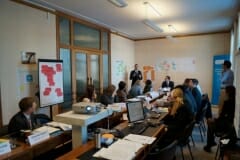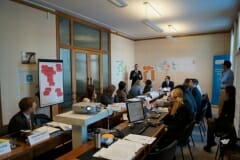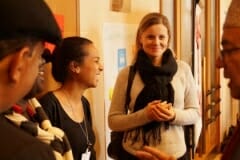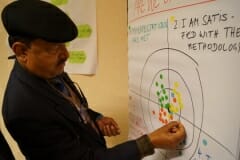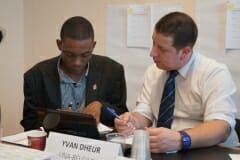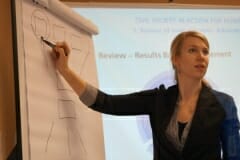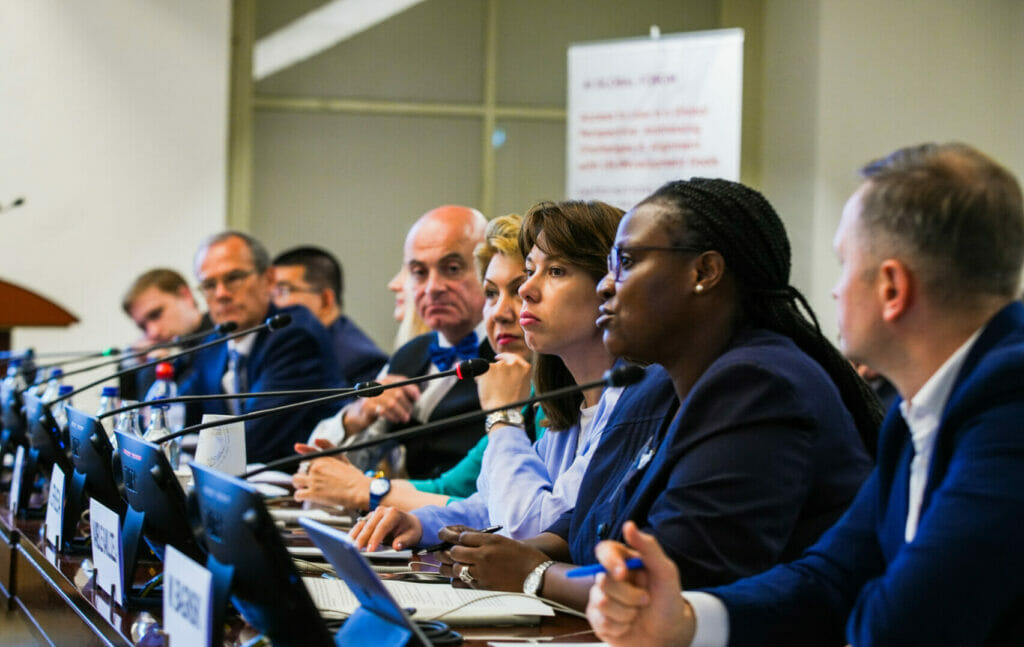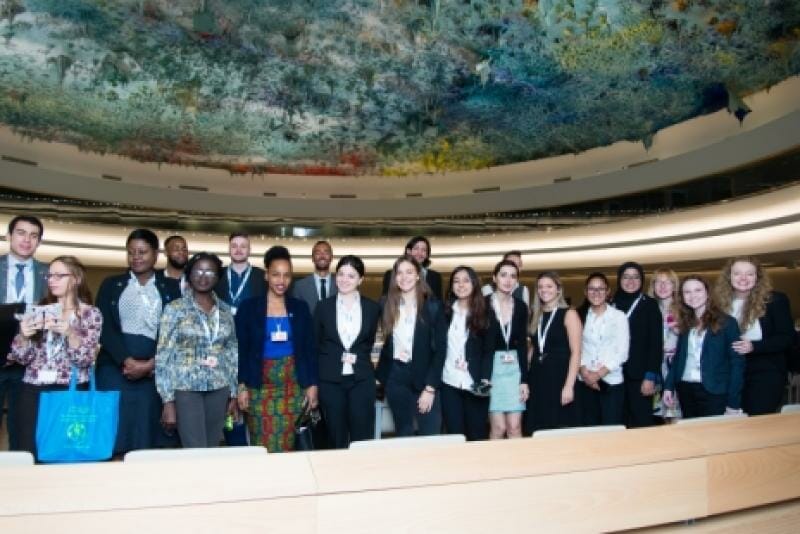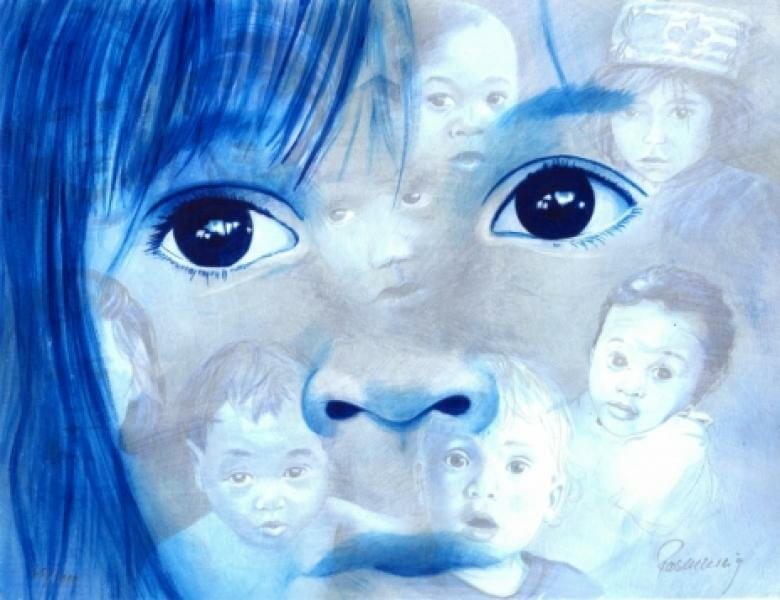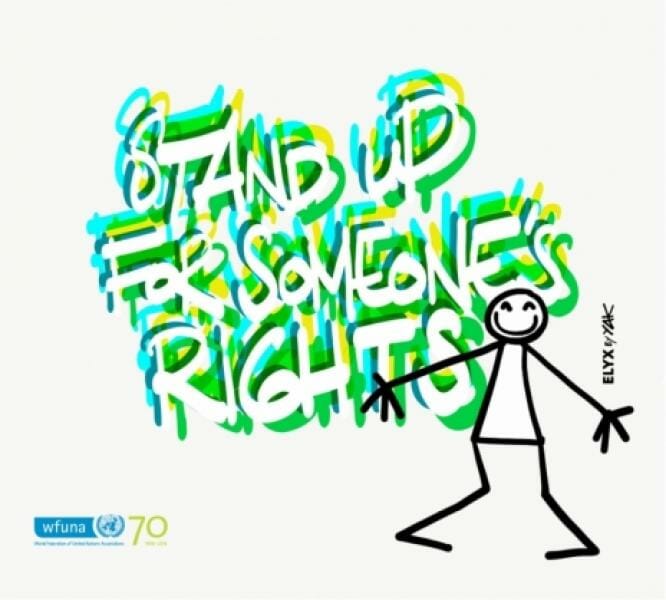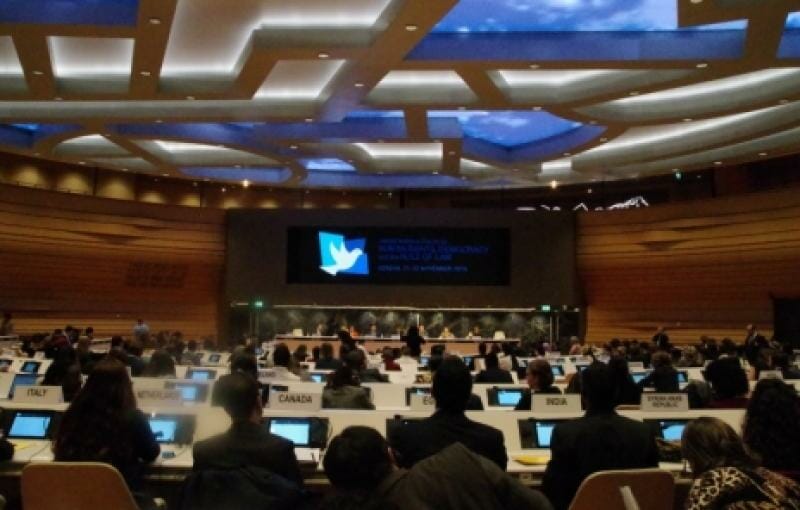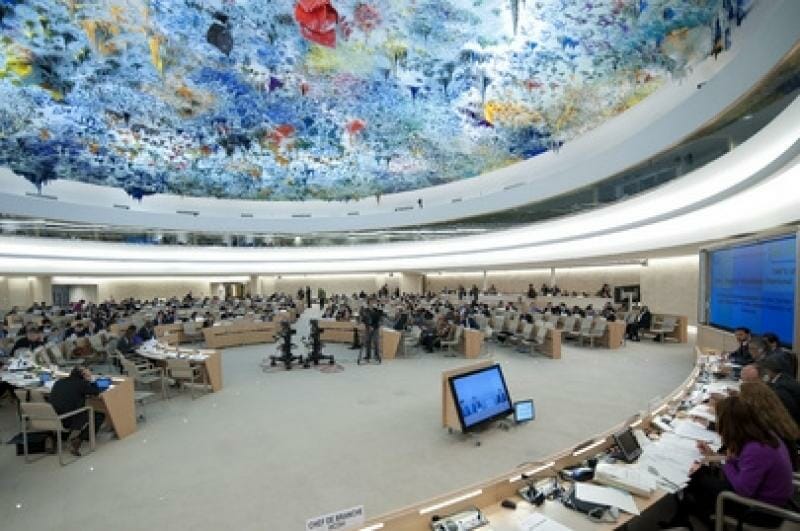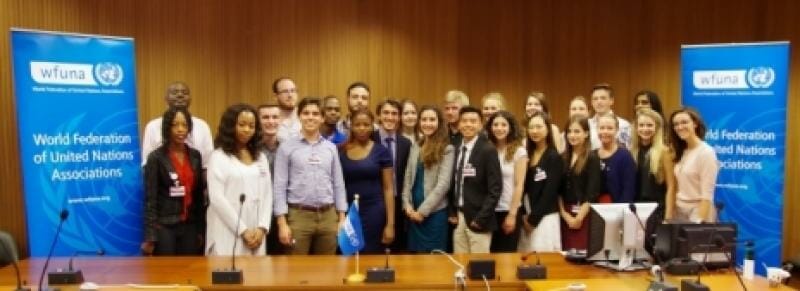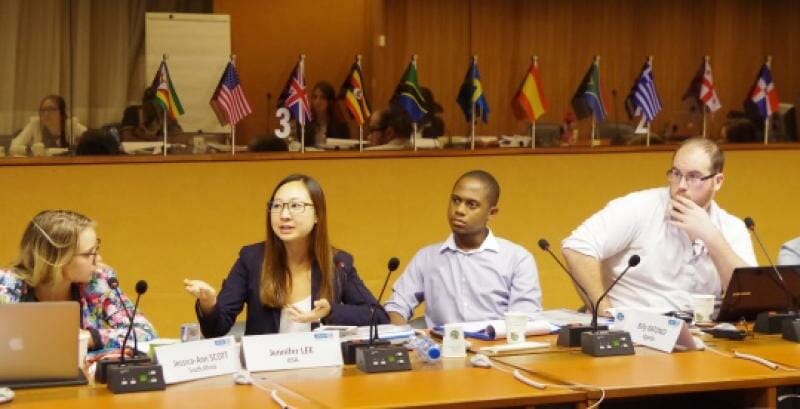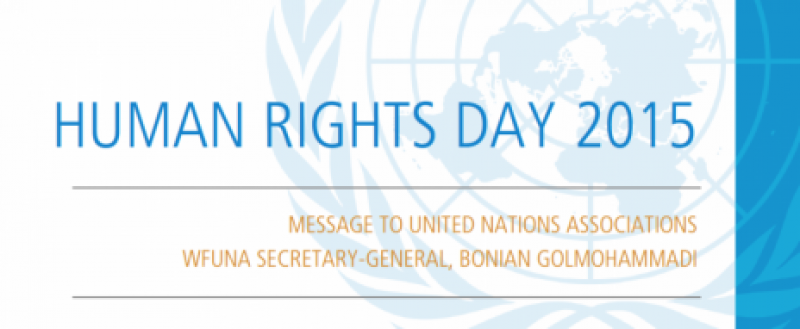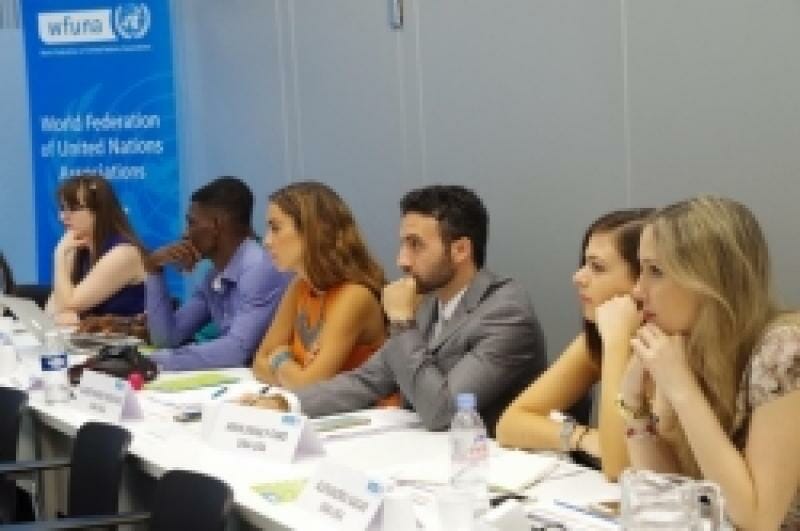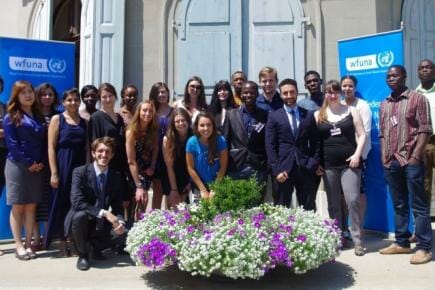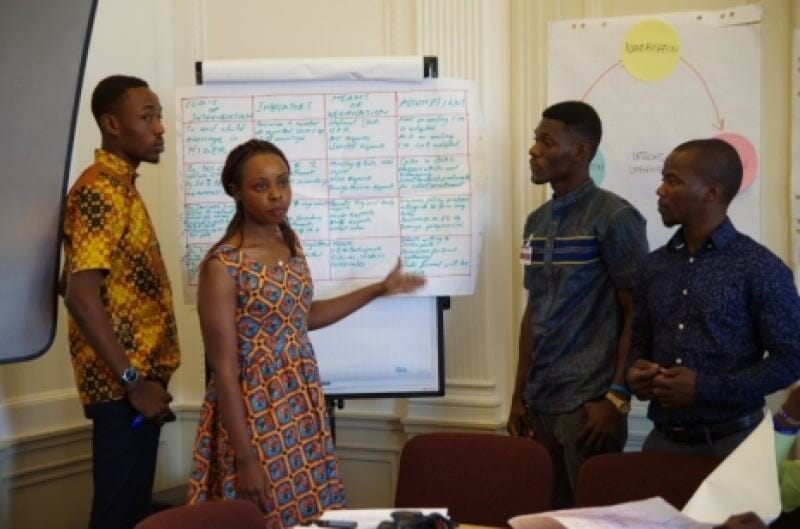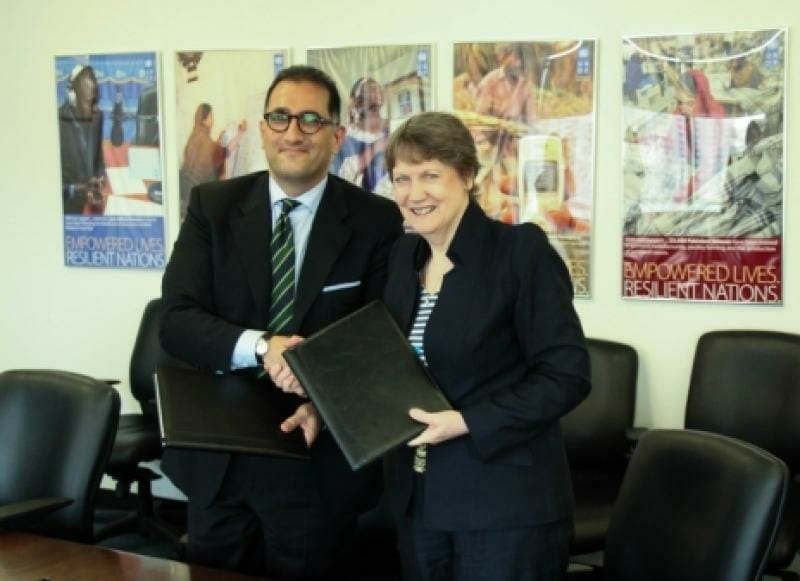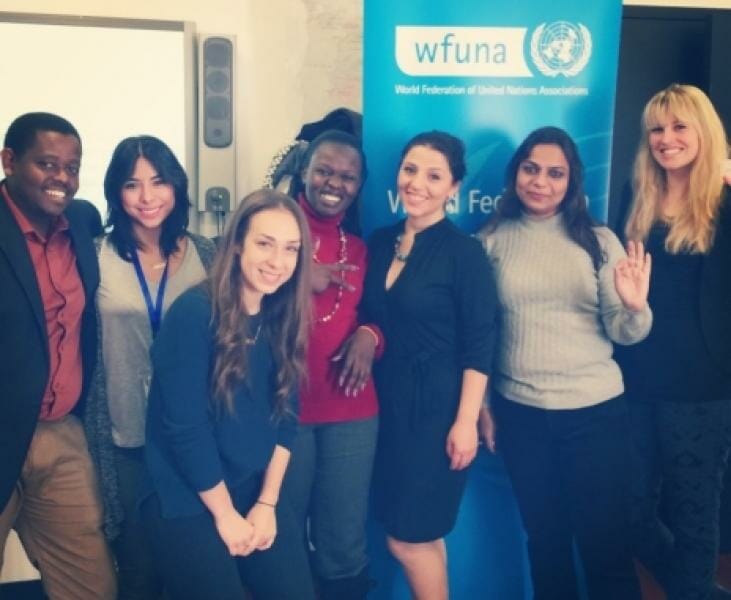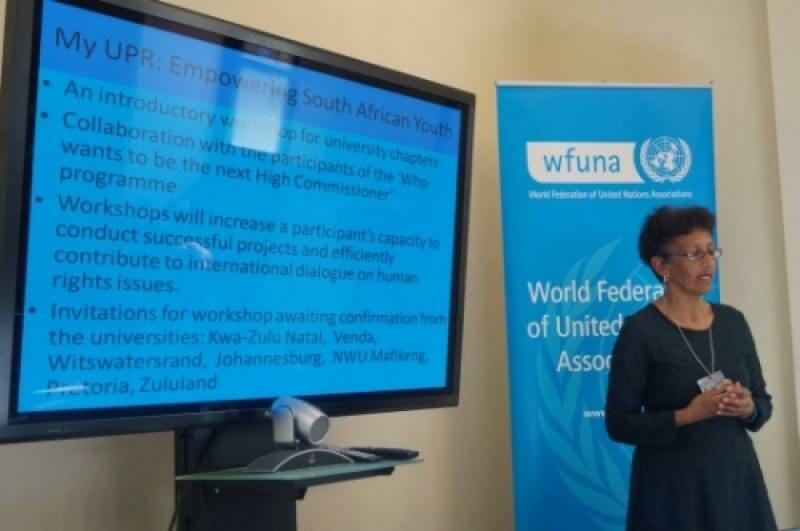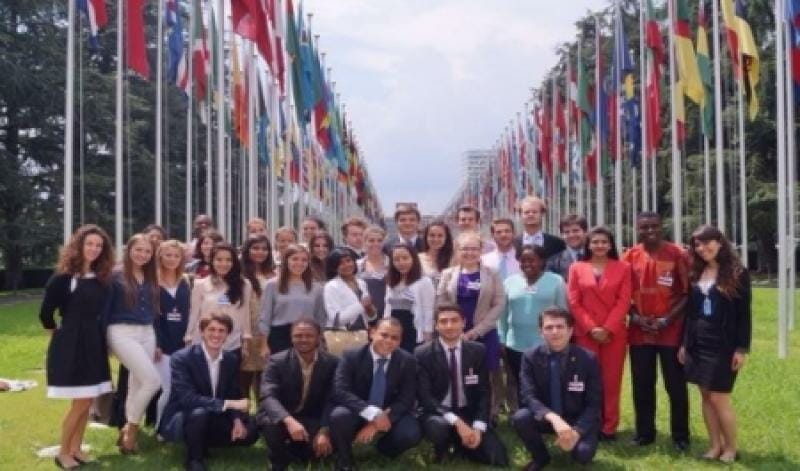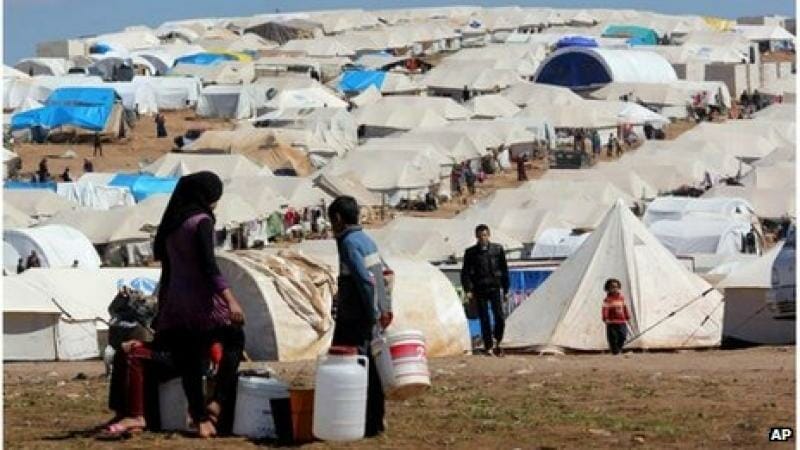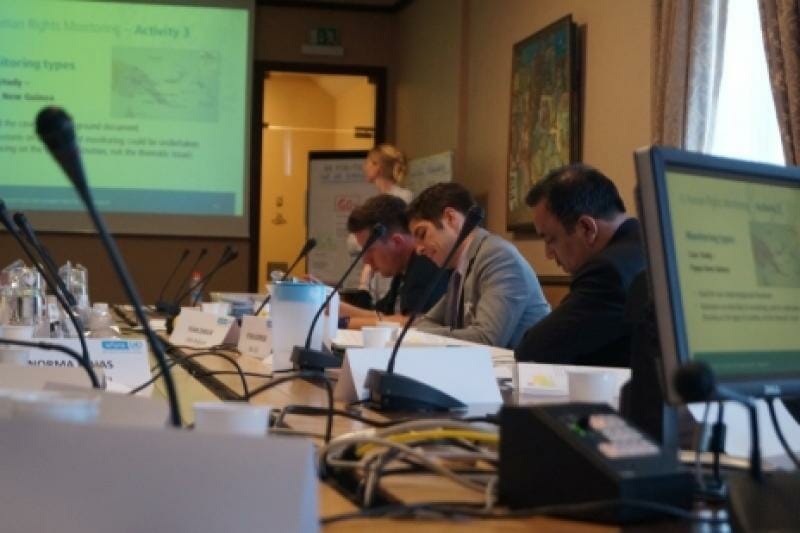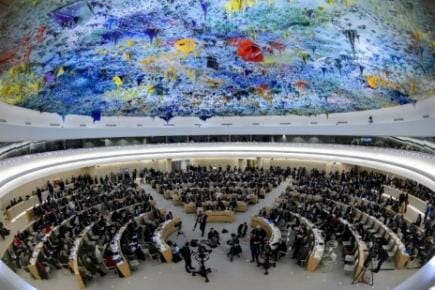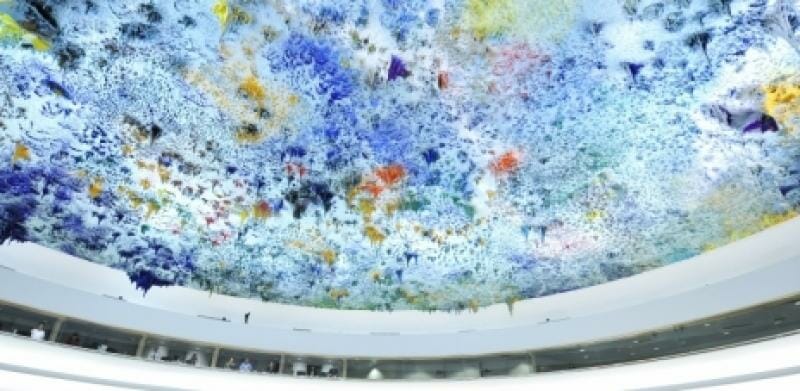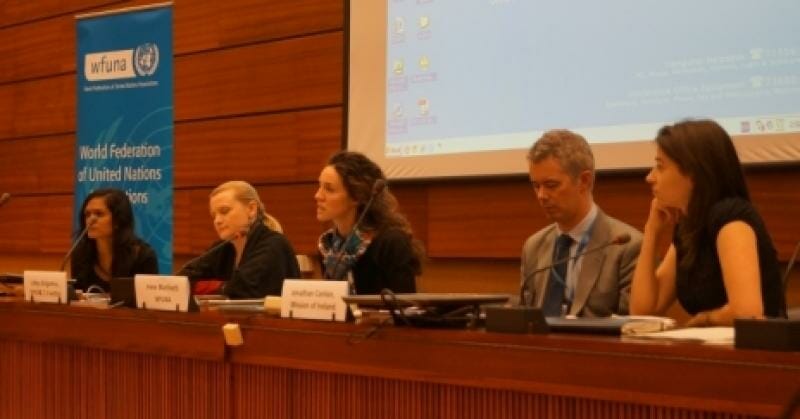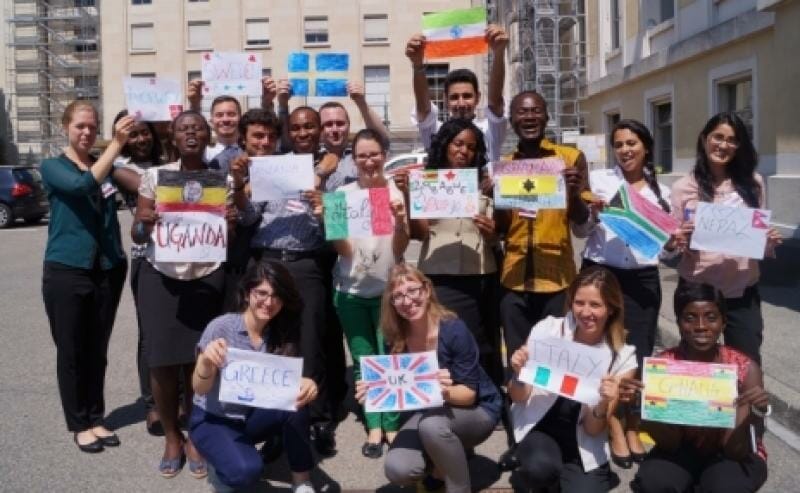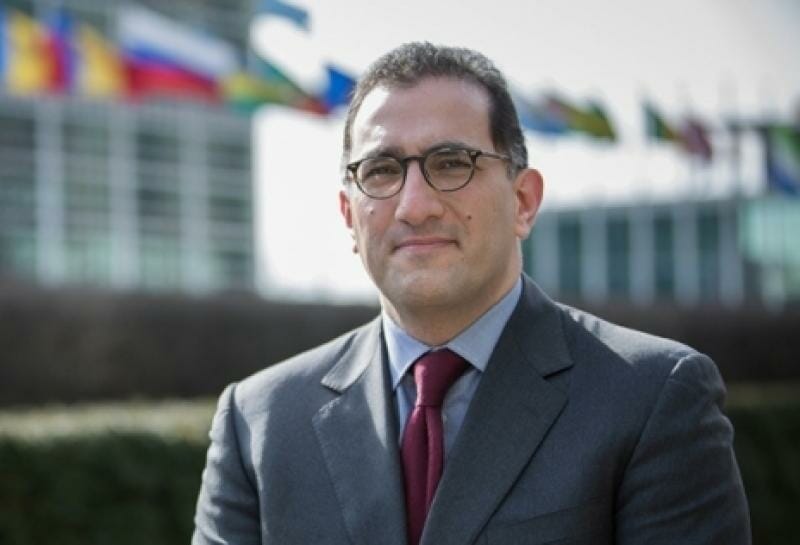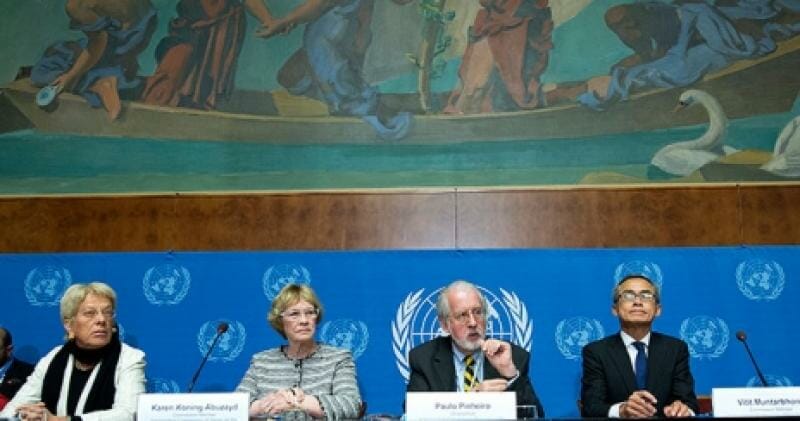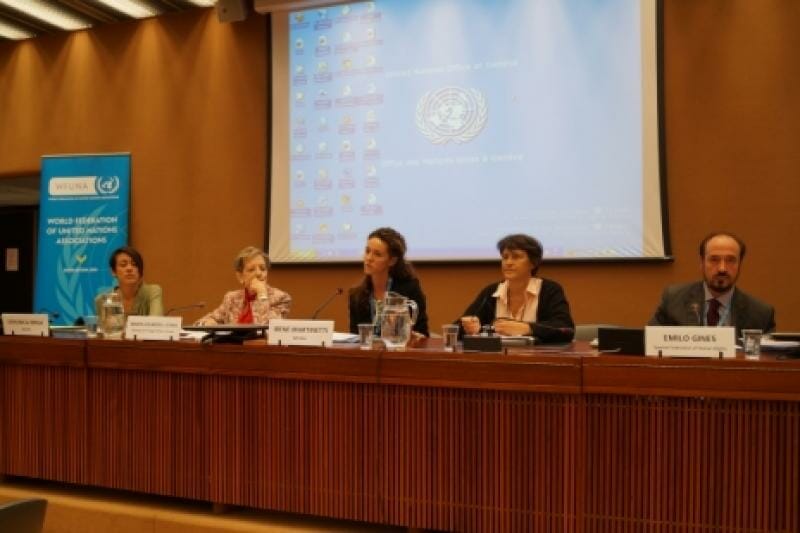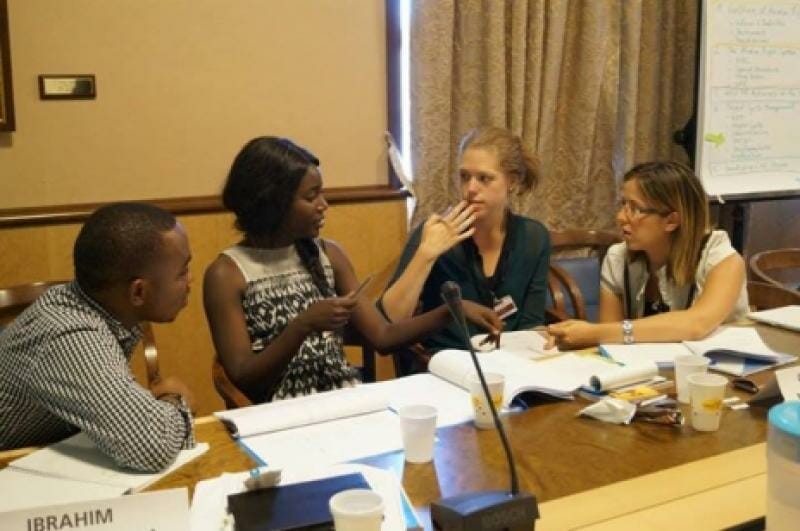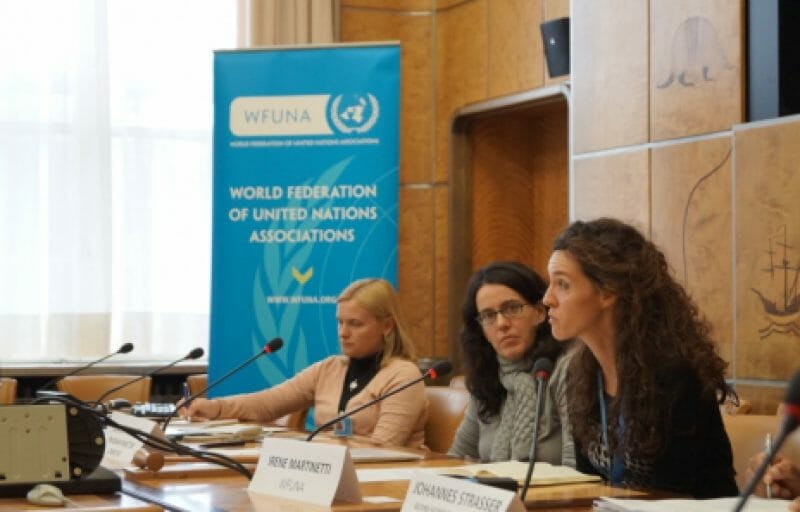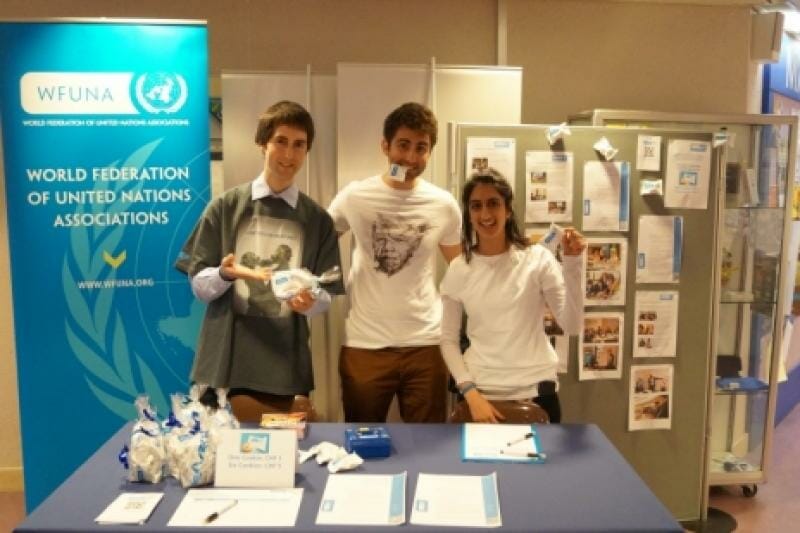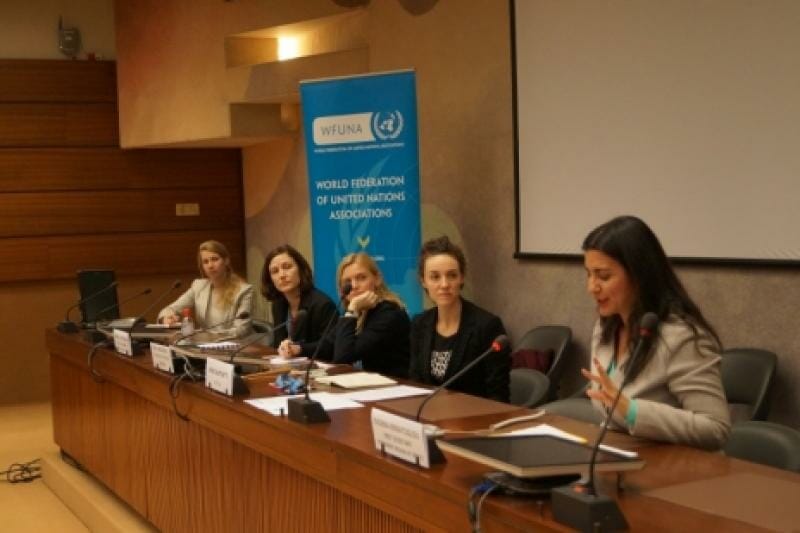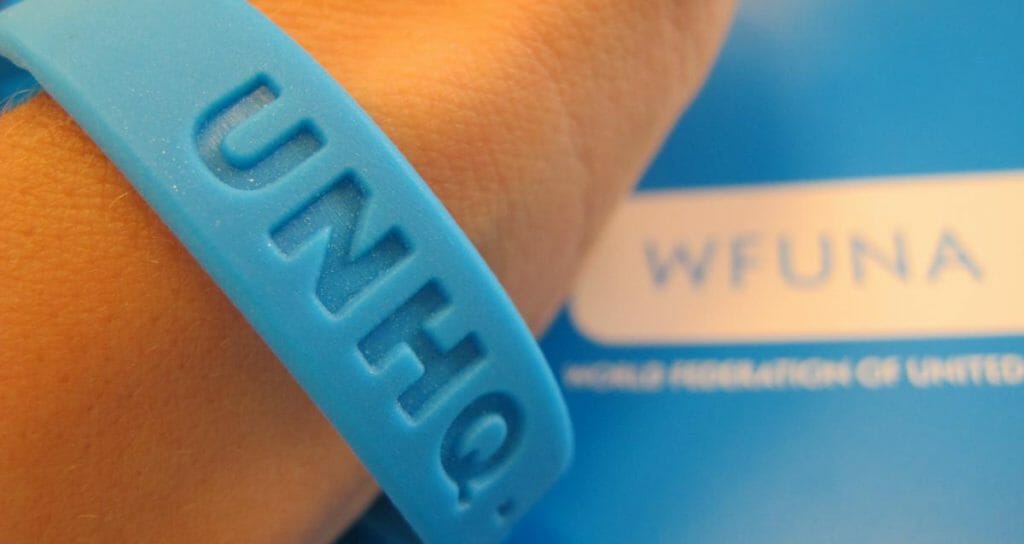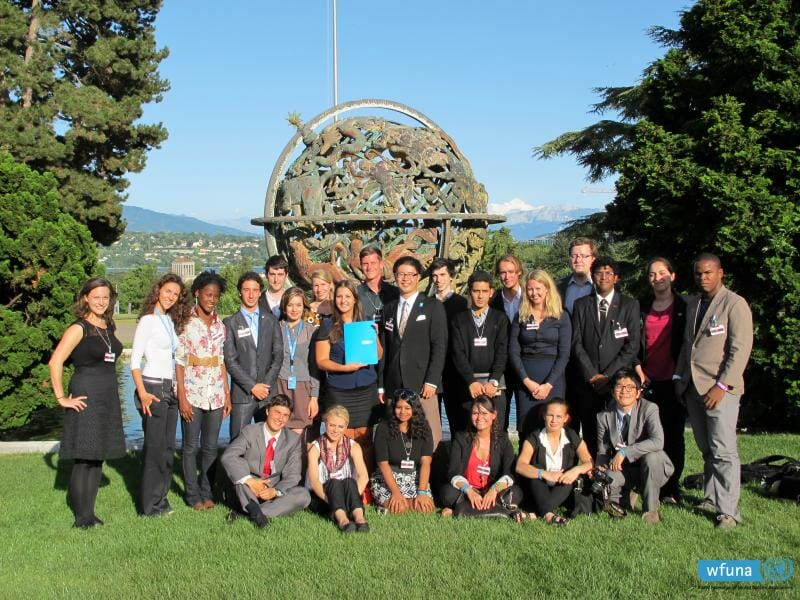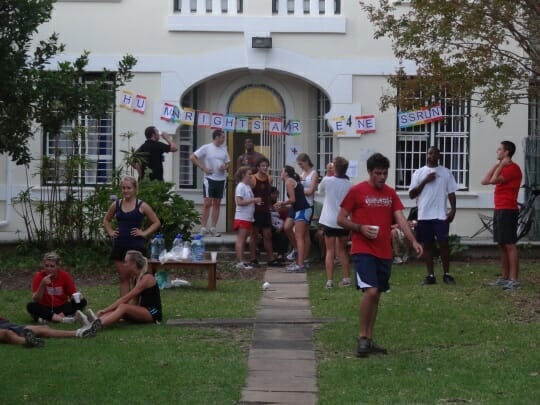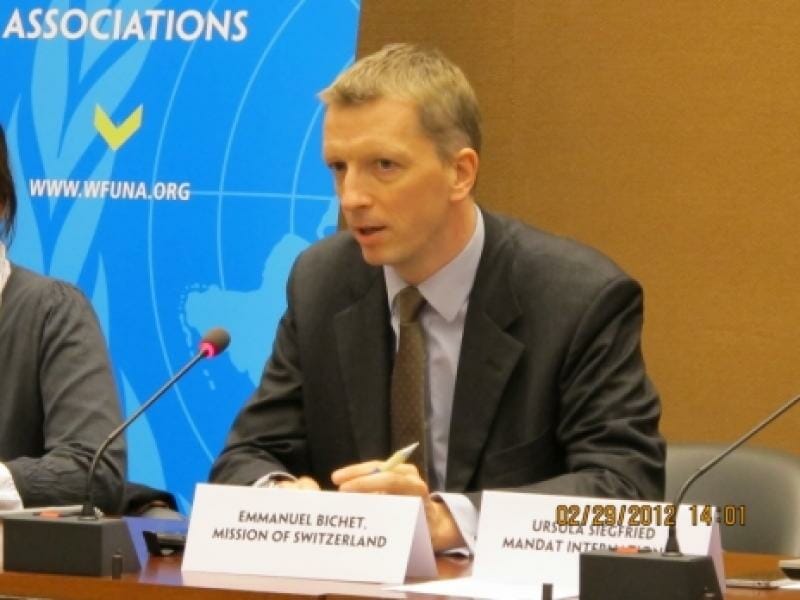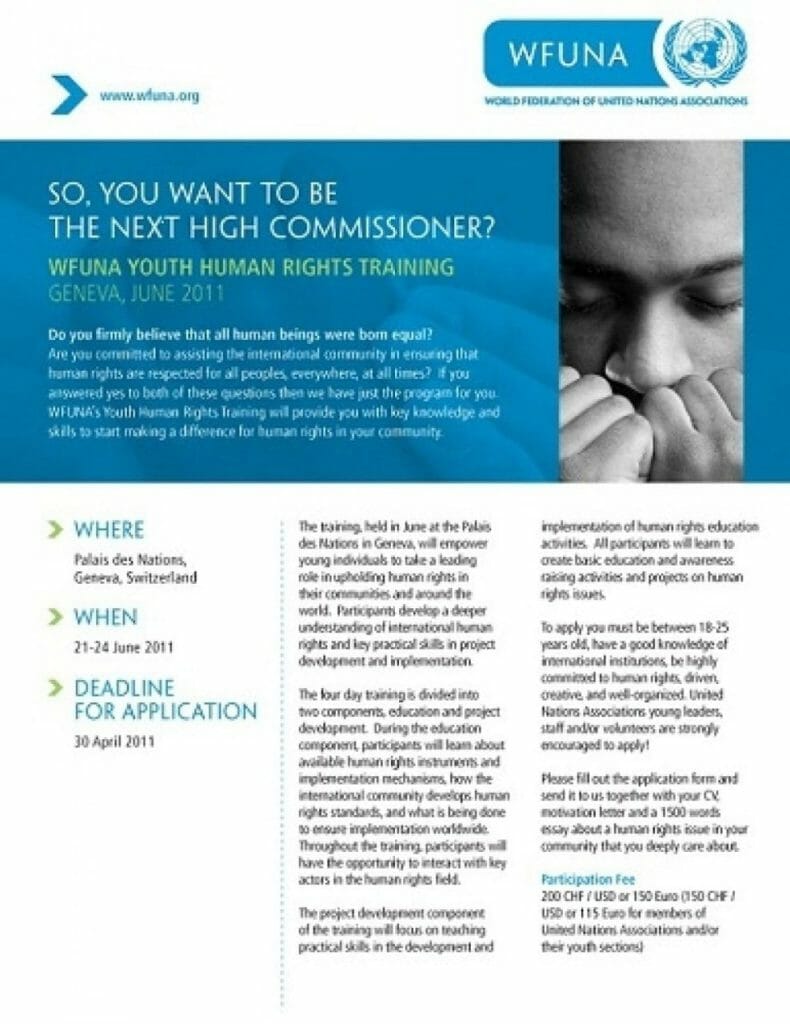GENEVA, SWITZERLAND – The World Federation of United Nations Associations (WFUNA) implemented the first session of Civil Society in Action for Human Rights (CSAHR) at Palais des Nations in Geneva, Switzerland, from 28 January – 1 February, 2013 with 20 participants from all regions of the world representing 13 UNAs.
Civil Society in Action for Human Rights: Session I
The first session was organized during the 15th Session of the Universal Periodic Review and aims to further enhance the effectiveness of United Nations Associations to design and implement strong human rights advocacy strategies both on a national and international level.
Day I: January 28, 2013
The first day of Civil Society in Action for Human Rights kicked off with a welcome speech by WFUNA Secretary-General Bonian Golmohammadi. His opening remarks were followed by Irene Martinetti, Director of Programs, encouraging participants to commit to all three years of the program and underlining the key work that UNAs undertake at national level. She continued by introducing an overview of the training design and objectives before participants welcomed the first speaker of the day.
Elena Ippoliti from the Office of the High Commissioner for Human Rights held an appealing session outlining the United Nations human rights framework and explaining the relationship between States as duty-bearers and citizens as right holders with regards to human rights.
During the afternoon Juan Fernando Núñez from the Office of the High Commissioner for Human Rights facilitated an interactive session on human rights assessment and planning during which participants engaged in group exercises. Among several tasks they had to conduct a mapping of relevant stakeholders for the human rights situation in an imaginary country. The exercise was a good example of how tools from the CSAHR training can be applied to the human rights advocacy activities carried out by UNAs.
Check out the pictures from the first day.
Day II: January 29, 2013
WFUNA was happy to start the second day in high spirits reporting the UNAs’ success in the quiz from the day before. The morning continued with WFUNA staff making a summary of the first day which focused on the UN human rights framework.
Hui Lu from the Office of the High Commissioner for Human Rights then briefed CSAHR participants about the development and mandate of the Human Rights Council and its various mechanisms to protect and promote human rights. Participants took great interest in the presentation and intervened with several in-depth questions.
The second speaker of the day, Isse Bokatola from the Office of the High Commissioner for Human Rights, guided the group through the unique UPR process in a very comprehensive session. Participants were keen to engage in discussion with the speaker after the presentation.
After lunch Nathalie Rondeux from the Office of the High Commissioner for Human Rights engaged with participants in a session on the UN Special Procedures mandate and how they conduct their work. These independent experts currently represent our 36 thematic and 12 country mandates worldwide. She highlighted that Special Procedures recommendations can be used by NGOs as concrete tools when carrying out human rights advocacy at the national level.
Check out the pictures from the second day.
Day III: January 30, 2018
Combining theoretical knowledge with a practical lesson, the third day started with a first-hand human rights advocacy experience when participants visited the UPR session of Liechtenstein.
Before lunch, Bradford Smith from the Office of the High Commissioner for Human Rights gave an overview of the treaty body system addressing their mandate and challenges. He also guided the group on how an NGO can most effectively access the system, highlighting the importance of timing and the necessity to address the most pressing human rights issues in a given country. His interesting remarks led to several questions from UNAs which resulted in a fruitful discussion between the speaker and participants.
In the afternoon June Ray from the Office of the High Commissioner for Human Rights held a much appreciated briefing on human rights advocacy in the context of the United Nations. She underscored the key role to be played by civil society organizations such as UNAs in the implementation process of recommendations stemming from various United Nations human rights mechanisms.
After her introduction she engaged with participants in an interactive group session where they had to develop a timeframe on how to best address a human rights abuse using relevant UN mechanisms.
Secretary-General Bonian Golmohammadi ended the day by congratulating UNAs for their efforts during the first three days and conducted a Q&A session. Questions were raised on fundraising approaches and he shared thoughts on how UNAs effectively can map potential donors and collaborate with corporations from the private sector.
Many UNAs took the opportunity to extend their sincere appreciation for the work carried out by the Secretary-General and WFUNA staff.
Check out the pictures from the third day.
Day IV: January 31, 2013
The fourth day of Civil Society in Action begun with WFUNA staff addressing some of the difficulties that participants encountered in the third and final quiz of the week.
Johanna Wiklund from UNA-Sweden took the floor as the first speaker of the day and shared her organization’s experience from submitting alternative reports to the UN Committee on the Elimination of Racial Discrimination. When they first started to engage with the treaty body in the beginning of the decade, UNA-Sweden was fairly new to the process but enhanced its capacity through cooperating with other civil society organization in Sweden writing joint reports. They submitted alternative reports 2004 and 2008 and the attitude of the government switched from a slightly suspicious one in the early stages to appreciating the work carried out by UNA Sweden and even actively seeking collaboration before submitting the national report to the treaty body.
Wiklund encouraged the group to start working with various treaty bodies as it is an educational and positive experience showing that UNAs is a serious and well-informed actor to count on.
Before lunch participants welcomed Caroline Tosti from NGO Management School. She started off with introducing concrete human rights advocacy tools that UNAs soon made good use of in an interactive group session. They were asked to develop a project framework addressing a specific human rights issue through mapping stakeholders and identifying effective interventions to be used. Tosti underscored the need to perform risk assessments when implementing a project and participants discussed mitigating strategies relevant of their respective project framework.
Finally she stressed the importance of monitoring the activities constituting the project in order to be sure that it is moving in the desired direction. After the implementation phase a proper evaluation should be conducted in order to learn from good and bad practices.
Check out the pictures from the fourth day.
Day V: February 1, 2013
The aim of the final day of the first CSAHR session was for each UNA to present their human rights advocacy project framework which they have been working with throughout the week.
Wiebke Harms, WFUNA Human Rights Education Program Officer, guided participants through the methodology developing an advocacy project. Advocacy is defined by its target to achieve change in a specific area or issue. Various activities such as education, media and awareness-raising campaigns can be used to influence stakeholders in the desired direction and she reiterated the importance of using measurable indicators when monitoring the progress of the project.
Questions were raised about risk management and mitigation strategies. Wiebke advised UNAs to categorise by occurrence and impact when assessing hypothetical risks. This is something that donors will look at and if the occurrence and impact of a risk is significant donors might even refrain from engaging. A significant risk may determine the whole project, thus risk management and mitigation strategies are key tools in any advocacy project.
UNAs dedicated several hours to develop and sharpen their projects before the group presentation. Issues that were targeted included domestic violence, education of journalists, human rights e-learning platforms, ratification of conventions and violence in universities.
The presentations surpassed everyone’s expectations and it was a joy to see how the committed participants have enhanced their knowledge of human rights and project development throughout the training. They are expected to develop the different stages of the project during following sessions of the Civil Society in Action for Human Rights program which carries on through end of 2015.
Irene Martinetti, WFUNA Program Director, concluded the session with her final remarks congratulating the UNAs and handed out well-earned certificates to all participants.
It has been a most rewarding experience to cooperate with the UNAs and WFUNA applauds all participants, facilitators and everyone involved for making this a truly successful event.
The next session of Civil Society in Action for Human Rights is scheduled between 16 – 21 September 2013.
Check out the pictures from the fifth day.


